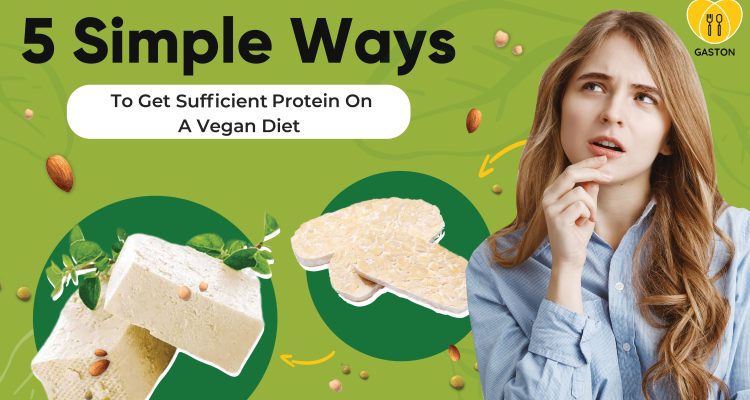
5 Simple Ways To Get Adequate Protein On A Vegan Diet
It’s no surprise that veganism has taken the world by storm. In the past few years, vegan restaurants and food options have exploded across the globe. But whenever anyone considers going vegan, more often than not, they are posed with the seemingly daunting question – How will you fulfill your protein requirement?
This question has more often than not acted as a psychological barrier to someone considering a vegan diet. Used to the usual options of chicken, dairy, meat, or egg-whites that easily fulfill a day’s quota of protein intake, it takes a bit of reorientation to consider and acclimatize yourself to the plant-based sources of protein which (surprise, surprise) have actually been around you all the time!
If you’re considering shifting to a vegan diet or are unsure of the protein intake of your current plant-based diet, read ahead to figure out the best ways to include sufficient protein on a vegan diet.
1. Identify The Amount of Protein You Need
As per the Dietary Reference Intake Report for macronutrients, an average adult should consume 0.7 grams of protein per kilogram (of their body weight) which translates to about 56 grams and 46 grams for the average man and average woman respectively.
Another simple way of calculating the amount of protein you need, according to SCL Health, is by first factoring in the total amount of calories you need as per your weight, gender and activity and then ensuring that 10-35% of those calories come in through protein.
Once you calculate the amount of protein you need as per your weight and taking into account your daily workload and activity, you would be better suited to make an informed decision regarding the amount of protein you should consume on a daily basis.
2. Include Protein-Rich Foods In Your Diet
Once you’re aware of the total protein intake your body needs, the next step is to ensure your diet (specially your main meals) includes generous servings of protein rich food-items.
Items like tofu which have 8g of protein per 100g and tempeh which has approximately 19g of protein per 100g are popular sources of protein for a plant-based diet. These versatile food-items can be cooked in a number of ways, including being baked or stir-fried. Grains like oats while being complex carbohydrates also provide a lot of nutritional protein to the tune of almost 10g per 100g!
3. Snack on Nuts & Seeds
Nuts and seeds are excellent snacking options which also fulfill your daily protein intake requirement. Nuts like almonds, cashews, walnuts and brazil nuts, and seeds like pumpkin seeds, chia seeds and sunflower seeds are rich in their protein content and provide a number of other nutritious vitamins and minerals essential for your body.
Nut butters like peanut butter or almond butter are delicious protein-rich options as well. Look for unsweetened versions with no added sugar or those sweetened with dates to derive the maximum health benefit from these nut butters.
4. Add Beans, Pulses & Legumes Where Possible
Soyabeans, chickpeas and lentils are low-fat and high-protein choices that you must include in your diet. Their versatility enables them to be consumed as meals, snacks or even as sides or add-ons to meals.
You can make soups, stews or even curries out of these food-items to ensure healthy variety in your meals! Roasted gram-flour is also an extremely popular and affordable source of protein.
Apart from being rich in protein, beans, legumes and pulses are high in fibre, potassium, magnesium and other essential nutrients that are imperative to good health.
5. Take Protein Powder If Needed
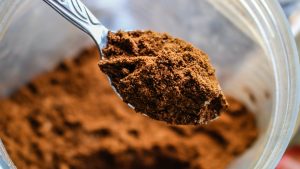 If your goals are gaining muscle-mass or if you are training hard for a sport, your protein needs may be higher. In these cases, you may look at alternate protein sources like protein powder which are a good supplement to fill in any gaps in protein requirement.
If your goals are gaining muscle-mass or if you are training hard for a sport, your protein needs may be higher. In these cases, you may look at alternate protein sources like protein powder which are a good supplement to fill in any gaps in protein requirement.
Each protein powder has different sources of protein so it may be a good idea to check the sources of your plant-based protein powder (blends of pea, rice, whole-grain, nuts or seed sources are usually considered good) as well as additional ingredients like artificial sweeteners or flavors in the mix.
Many brands even offer ‘protein balls’ which have protein powders along with nuts and seeds and are packaged as convenient on-the-go snacks.
Clearly, plant-based protein options are all around us and readily available at our local grocery store or nearest supermarket. The ready-availability of information online and the growing infrastructure of the vegan food industry now ensures that you’re well aware of and never too far from appropriate vegan food alternatives.
With Gaston on your fingertips, you can order meals suited to your vegan diet or even meal-kits that contain plant-based items only.
Gaston is your go-to partner for all things vegan! Gaston helps you find meals and dining options near you as per your dietary needs and preferences.
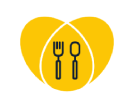


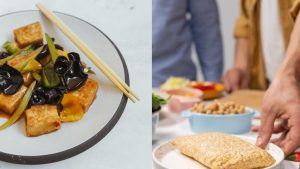
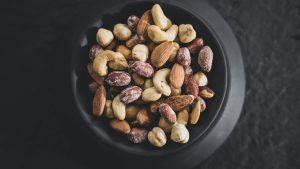
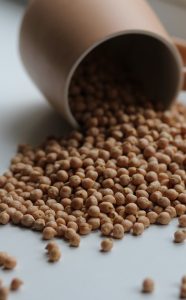
0 Comments